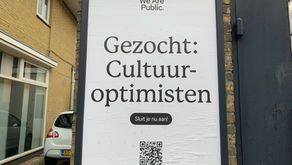COMA Gala
- Judith Weir
- Oct 27, 2014
- 2 min read
21 years ago COMA (Contemporary Music for All) was founded with a Summer School at Wortley Hall in South Yorkshire. I was there, and well remember the legendary venue, a stately home rescued from derelection and refurbished by trade unionists for their workers’ leisure and educational visits. This site of collaboration, democracy and love of craft couldn’t have been a better place for Chris Shurety to lauch an essential British musical movement.
Talking to performers and composers at Saturday’s Gala in London, it became clear that COMA is not just a national group of ensembles, but also a philosophy, and the embodiment of widely held aspirations for a better musical future in this country. Key to COMA’s strategy is the intervention of composers who write flexibly-scored ‘open-form’ (ie providing multiple performance options) music which is performable by players with various levels of familiarity their instruments. A word we were all tip-toeing round yesterday was ‘amateur’. It has some unfortunate (unintended) resonances, as in ‘amateur=not very good’ as well as ‘= pretentious antique-loving’. COMA performers don’t play music for a living, but they otherwise cover a very wide range of skills. Writing music for them can be liberating for composers. As Piers Hellawell said in last night’s panel discussion, ‘if there was a music processing programme that translated your music into broad brushstrokes, and dragged your attention away from the page and towards the people playing…it would be called COMA’.
Several colleagues (including Michael Finnissy and Alexander Campkin) shared my own experience that their COMA compositions, unregarded in any critical light, had been amongst their most-performed and internationally travelled works . Some extended COMA classics were grandly played by the full ensemble for the concluding concert in St Johns Smith Square. All the works were well worth playing and hearing, but for me the standout success was Philip Cashian’s The Forest of Clocks for orchestra and chorus . Occupying the rich artistic territory of Neruda, Lorca and Kathleen Raine texts, complex and sophisticated yet presumably playable and singable, the impression was not ’ I’m listening to amateurs’ but ‘I'm hearing a major work by an accomplished composer’. The professional London orchestras should perform this too. And I hope Cashian and other college composition teachers present at the Gala will be able to pass their COMA skills and practice on to their students. A sea change is needed. If this way of composing becomes closer to the norm, more people will be able to play new music, hear it in their locality, become familiar with it, and one day, love it. On to the next 21!






